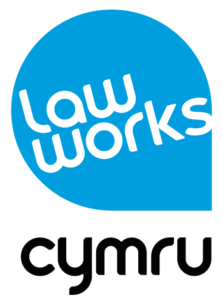The results for the first ever Solicitors Qualifying Examination (SQE) assessment are now available for candidates to access, as the Solicitors Regulation Authority (SRA) reports 53% of candidates have passed.
Introduced by the SRA to provide assurance that all qualifying solicitors have met a consistent standard, all the analysis shows that this assessment is fair, reliable and valid. Previously candidates had to complete the Legal Practice Course (LPC), where pass rates vary significantly between providers, ranging from around 23 per cent to 100 per cent.
The November 2021 SQE1 assessments saw 1090 candidates, including 27 solicitor apprentices, taking the assessment across more than 100 test centres in 26 countries.
Anna Bradley, Chair of the SRA Board, said:
‘The introduction of the SQE should give everyone confidence that those entering the profession have all met the same high standard. So we are pleased that the first assessment has gone well with results that suggest it was a robust, fair and reliable exam.
‘It will of course take time for the full benefits of the SQE to be realised, but this is a good start. I would like to thank the expert teams who have delivered what is a step change in how solicitors enter the profession, particularly our Director of Education, Julie Brannan and our provider Kaplan.’
The SRA and Kaplan, the assessment provider for the SQE, have published headline data on the SQE results, as well as information on how it went and the diversity of the candidates. The SRA has also published a report on the assessment by the SQE Independent Reviewer.
Lucie Allen, Managing Director, BARBRI, said:
“This is a historic moment for the legal sector, and we’re thrilled that BARBRI has been able to play a key role in supporting the SQE’s implementation.
“The inaugural SQE1 results demonstrate that despite initial concerns across the industry around the ‘super exam’, candidates can and will thrive with the right preparation and support. BARBRI supported over 400 students through their SQE1 preparation and although we’re still waiting to confirm our final candidate data, initial figures indicate that the majority of BARBRI candidates achieved a pass.”
The data – how does the SQE1 compare?
1,090 candidates, including 27 solicitor apprentices, took part in the November SQE1 assessments, with 1,073 candidates sitting both Functioning Legal Knowledge 1 (FLK1) and Functioning Legal Knowledge 2 (FLK2). This is a transitional period with the majority of people still qualifying through the Legal Practice Course (LPC) or Qualified Lawyer Transfer Scheme (QLTS) routes and the SRA ‘predicted’ the candidate cohort ‘would be smaller than in later years’.
The pass mark for FLK1 was 57% and for FLK2 was 56%.
To pass SQE1, candidates need to pass both FLK1 and FLK2. 53%* of candidates passed both assessments, with 67% of candidates passing FLK1 and 54% passing FLK2. In order to qualify, successful SQE1 candidates will then need to attempt SQE2 (unless they have an SQE2 exemption) as well as showing that they have a degree (or equivalent), that they meet our character and suitability requirements and have completed two years’ qualifying work experience (QWE).
The SRA said that there continue to be significant differences in successful completion rates on the LPC between providers. Between 2018 and 2020, pass rates ranged from 23% to 100%, with typical overall pass rates of around 58% [link to most recent ACMR]. For the QLTS multiple choice test between 2018 and 2020, the average pass rate was 57%.
A ‘troubling difference’ in achievements
The results show that there was no significant difference between the performance of candidates on a range of diversity characteristics. There was however the expected difference in performance by ethnicity. White candidates generally performed better than candidates from Black, Asian and minority ethnic groups: 65% of white candidates passed compared to 44% of Black, Asian and minority ethnic groups.
Anna Bradley said:
‘We anticipated that we would again see the troubling difference in performance for candidates from Black, Asian and minority ethnic groups that has been a longstanding and widespread feature in examinations in the legal and other sectors.
“We know the reasons will be complex and, as well as ongoing review and analysis, we have appointed Exeter University to carry out in-depth research to better understand the factors driving the attainment gap for these groups in professional assessments, so that we can do everything we can to address the issues.”
SQE2 bookings
Booking for the first SQE2 assessments, taking place in April, opens on 25 January. The next SQE1 assessments take place in July, with booking opening on 17 March.
Feedback event on the first SQE1
The SRA is running an online event in February 2022 where it will feedback on the SQE1 assessments. There will also be an opportunity for training providers to give their experience of preparing candidates for the first assessments.
About the SQE
The SQE is a single, rigorous assessment for all aspiring solicitors. To qualify through the SQE, candidates must:
- have a degree in any subject or equivalent level 6 qualification, such as an apprenticeship
- pass both stages of the SQE assessment – SQE1 and SQE2
- two years’ full-time (or equivalent) qualifying work experience
- pass the SRA’s character and suitability requirements.
The SQE is provided by Kaplan working with, and on the behalf, of the SRA. Further information about the SQE can be found at on the SQE website.
____
*Note that all statistics have rounded to the nearest whole number by the SRA.







